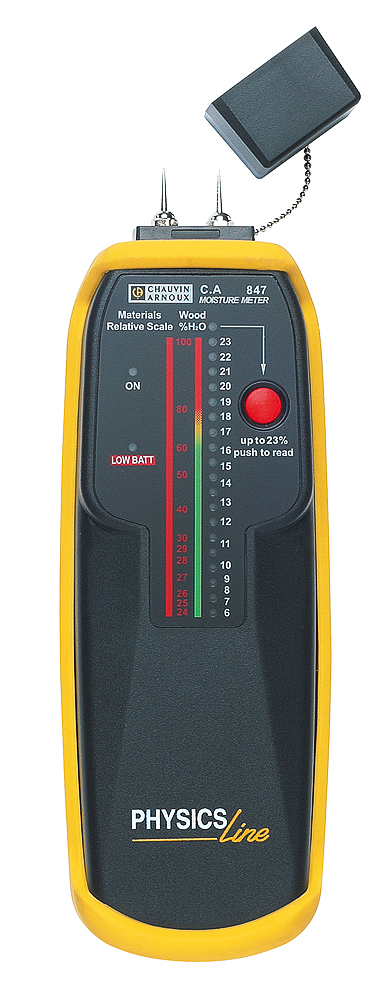A moisture meter is an essential tool used to measure the amount of moisture in a material or substance. This device is used in a wide range of industries such as agriculture, construction, woodworking, and manufacturing. In this article, we will discuss the use of moisture meters, the different types available, and their importance in various industries.
What is a Moisture Meter?
Contents
A moisture meter is a device that is used to measure the amount of moisture content present in a material. These devices come in a range of sizes and types, with some specifically designed for measuring the moisture in a particular material. The most common types of moisture meters are pin-type, pinless, and grain moisture meters.
Read also: 4 Main Components of Concrete
Pin-Type Moisture Meters
Pin-type moisture meters are the most commonly used moisture meters. These devices have two metal pins that are inserted into the material being measured, and a digital display shows the moisture content of the material. Pin-type moisture meters are used to measure the moisture content of materials such as wood, drywall, and concrete.
Pinless Moisture Meters
Pinless moisture meters use electromagnetic waves to measure the moisture content of materials. These devices are ideal for measuring the moisture content of materials such as carpet, wallpaper, and insulation. Pinless moisture meters are more expensive than pin-type meters, but they are more accurate and do not damage the material being measured.
Grain Moisture Meters
Grain moisture meters are used to measure the moisture content of crops such as corn, wheat, and soybeans. These devices are essential for farmers as they help them to determine the best time to harvest their crops. Grain moisture meters can also be used to detect mold in crops, which can be harmful to both humans and animals.
Go To: Filling a Vinyl Fence Post With Concrete
Uses of Moisture Meters
Moisture meters have many uses in various industries. Some of the most common uses are as follows:
Woodworking
Moisture meters are essential for woodworking. They help woodworkers to determine the moisture content of the wood they are working with, which is crucial for ensuring that the wood is stable and will not warp or crack over time. The grain moisture meter also helps woodworkers to determine the best time to finish their projects, as wood with a high moisture content takes longer to dry.
Construction
Moisture meters are used in the construction industry to measure the moisture content of materials such as concrete, drywall, and insulation. This is important as materials with a high moisture content can lead to mold growth, which can be harmful to human health. Moisture meters are also used to detect leaks in roofs, walls, and floors.
Agriculture
Moisture meters are used in agriculture to measure the moisture content of crops such as corn, wheat, and soybeans. This is important for farmers as it helps them to determine the best time to harvest their crops. Moisture meters can also be used to detect mold in crops, which can be harmful to both humans and animals.
Manufacturing
Moisture meters are used in the manufacturing industry to measure the moisture content of materials such as paper, textiles, and plastics. This is important as materials with a high moisture content can affect the quality of the product being manufactured. Moisture meters are also used to detect leaks in pipes and tanks.
Importance of Moisture Meters
Moisture meters are essential tools that are used in various industries. They help to ensure that materials are of the correct quality, and they can also help to prevent health hazards such as mold growth. Moisture meters can also save time and money by preventing the need for costly repairs and replacements.
Conclusion
Moisture meters are important tools that are used in various industries. They come in a range of sizes and types, with each designed to measure the moisture content of a particular material. The most common types of moisture meters are pin-type, pinless, and grain moisture meters, and they are used in woodworking, construction, agriculture, and manufacturing.
Moisture meters are essential for ensuring that materials are of the correct quality and preventing health hazards such as mold growth. They can also save time and money by preventing the need for costly repairs and replacements. In conclusion, moisture meters are an essential tool for maintaining the quality and safety of materials in various industries.

